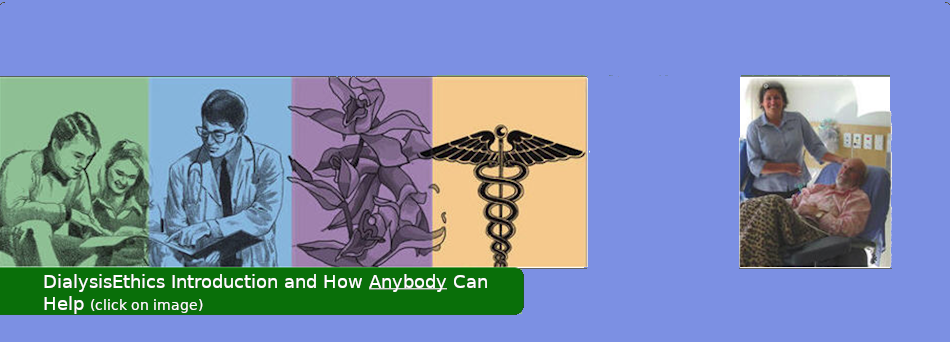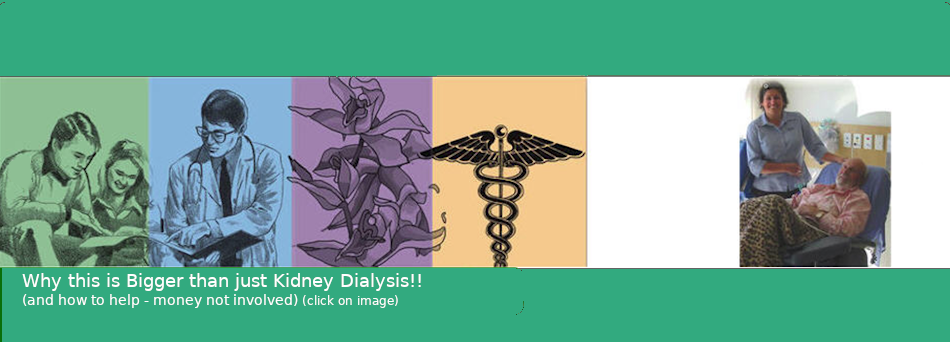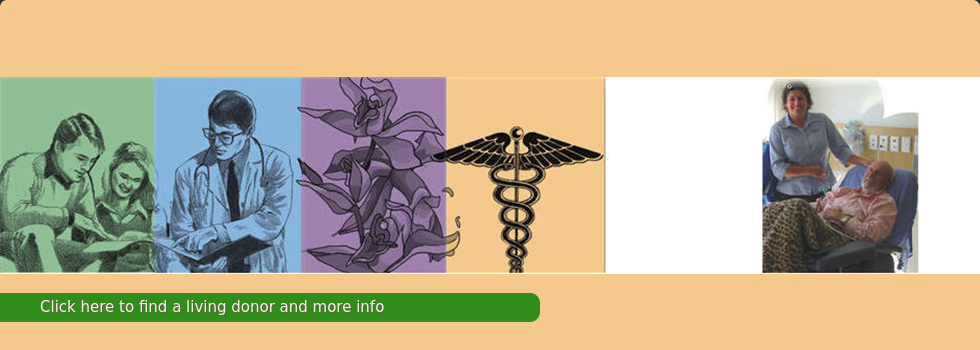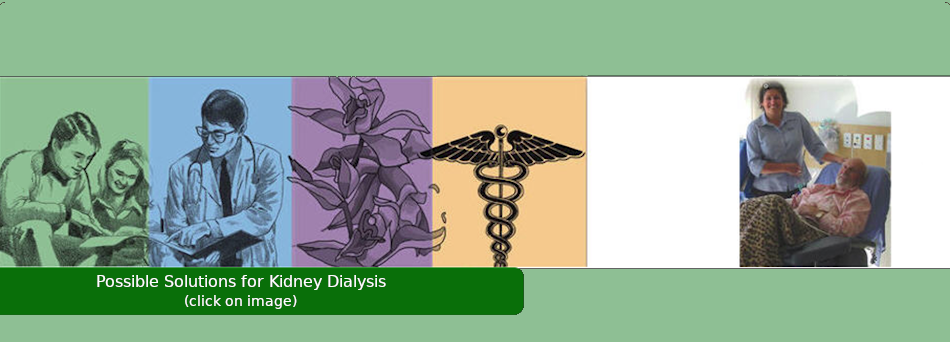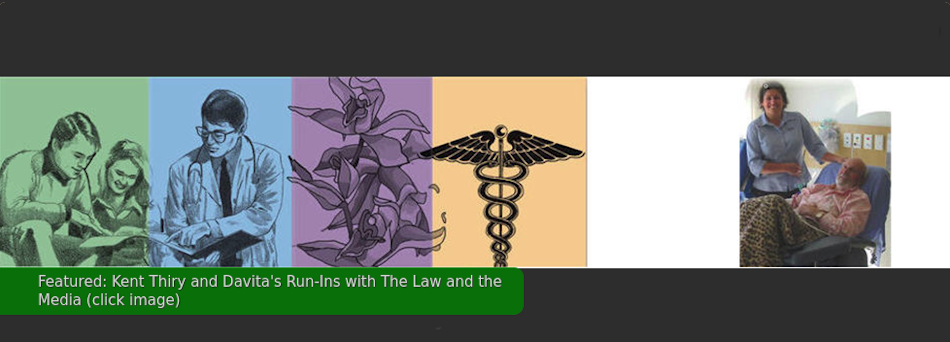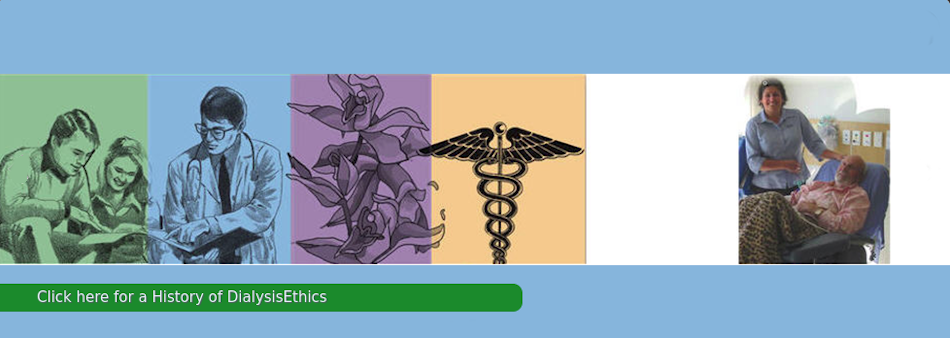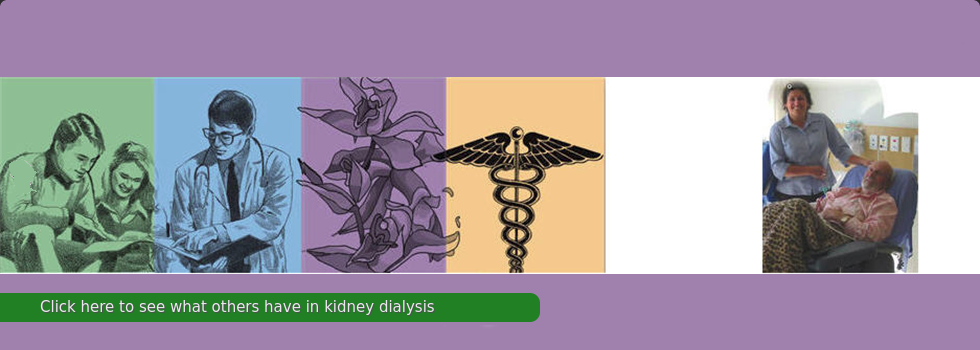Blog #19 Just a Couple of Guys from the Neighborhood - Can They Make a Deal?
- Details
- Written by: Super User
Update: And it gets worse: KIDS!!!!
Petition (and see our visit to DC and DC Press Conference + Rally)
This writer re-gifted himself an old toy he made new for the holiday season - an old X (formerly twitter) account and now renamed @BreakUpDaVita! There was hesitation at first to dive in after hearing about X's Wild West reputation - but then it was remembered this writer loves that sort of thing! (who have I been kidding) Slow inroads have been made with a few followers and I've met a lot of friendly people - especially young ladies who want to be my friend! (darn animal magnetism gets this old grandpa in trouble every time) Sorry ladies, I'm spoken for so I had to block you! (and a lot of that behavior wasn't very ladylike)
However there was one follower who was quite interesting @elonmusk_1fan. After dealing with the "friendly" ladies and years of following the antics of people like former CEO of DaVita Kent Thiry, I went into "safety first" mode! I decided to block and ask questions later, even though the person behind the account started to Direct Message me. Odds are it is a scam or a put-on, but long shots do come in now and then don't they? So I went back to the @elonmusk_1fan to take another look - I'm now blocked (tit for tat, I admire that) However I got to thinking about what I would say if it really was @elonmusk. So let me go into dream mode here, I'll take my meds when I'm done:
"Mr. Musk, I first want to apologize for blocking you. After years of being a kidney dialysis advocate and seeing things like this, I hope you understand how I might be a little jumpy. But assuming it was you and not a scammer I thought about what I would say. Actually I'm thinking about what Mr. Rogers would say. I've been thinking about him a lot lately and using the thought of him to calm my mind before I post on X and hoping he can help me calm the X waters there.
First he would invite you to the neighborhood and congratulate you for fixing up jalopies and making them nice and shiny and new - and less smelly (sure, we knew you could). Then he would inform you that there is a used car dealer in the neighborhood by the name of Warren Buffett. He has been selling some reputable merchandise, but along with that are some lemons (cigar butts as Charlie Munger would call them). Probably the biggest cigar butt would have to be a junker called DaVita. There are rumors (that I started) that Mr. Buffett has been paid visits from his former partner - the chains rattling are keeping him awake at night! Add to that the visions of hell he has been getting lately. He is realizing he is going to be run out of town permanently here soon and is starting to get a little edgy and would love to unload that junker - maybe selling it to somebody who sees a 'Road to Redemption' going this way. I'm sure he would love to sell it to somebody who can say "product quality" - he sure couldn't."
Petition (and see our visit to DC and DC Press Conference + Rally)
Blog #18 A Christmas Carol, starring Warren Buffett with Charlie Munger in the Role of a modern Jacob Marley
- Details
- Written by: Super User
!!!P.S. The following History and recent Children's stats linked to, need to be emphasized!!! Update: And it gets worse: KIDS!!!!
Endorsement from NYT's best-selling author Tom Mueller: X Post
Fight Back: Petitions (and see our visit to DC)
The ghost of Jacob Marley to Scrooge: "In life, my spirit never rose beyond the limits of our money-changing holes! Now I am doomed to wander without rest or peace, incessant torture and remorse!"
A more modern continuation of the above might be the ghost of Charlie Munger whispering to Warren Buffett: "Break up the huge kidney dialysis company DaVita for starters!" "Our refrain of **PROPER HEALTHCARE, who needs PROPER HEALTHCARE - just figure out how to charge out the wazoo!!** , hasn't played well in the hereafter!"
At first blush, we might want might want to believe it was just an oversight that caused Munger and Buffett to miss all the God-awful stats and stories about kidney dialysis. They just missed seeing the horrific history and current news about even KIDS!!! They have been busy gathering up the love and adoration of their Berkshire Hathaway shareholders! Much too busy to find out and admit whether or not what they have invested in, is sending people to an early grave - petty boring details! Much more fun to plan and attend their annual wing-dings in Omaha, the "Woodstock of Capitalism" (more like the "Woodstock of Monopoly Capitalism"). I attended last May's party and it was like a Roman festival celebrating the Great Green God money! I still have to wonder how they got those RVs into the Colosseum (er, the CHI Health Center). Don't get me wrong, nothing wrong with making a little money but there are still some us who think it should be made fair and square without running over the "customers". One of those people might be NYT's best-selling author Tom Mueller with his new book: 'How to Make a Killing: Blood, Death, and Dollars in American Medicine'. More people might be found at M.I. Mother's Keeper in Washington D.C.. And let's not forget what the people in this Reading List have to say.
Sure, Buffett and Munger just missed the above stats and stories. Like they missed a problem with another one of their investments, Clayton Homes.
Quote:
"In minority communities across the American South where Clayton has established dominance, the company seizes homes and land and resells them in a churn that strips individuals of their assets and communities from holding and building wealth."
---------------------------------------------------------
And then there is their investment in Teva Pharmaceuticals, possibly they hadn't been informed about the opioid crisis?
Charlie Munger may have had a soft spot for his own child Teddy who died of leukemia, but he really seemed to have a blind spot for other people's kids. Whether it was intentional or not, possibly only he knows. But this writer has to ask how he could have NOT known.
Warren Buffett has been good at playing the role of the magnanimous, benevolent billionaire - trying to buy his way into heaven? Can he be as good at admitting and rectifying his mistakes? At 93 he might not have much more time. He might be hearing the Jacob Marley lament:
"It is required of every man that the spirit within him should walk abroad among his fellow men! If it goes not forth in life, it is condemned to do so after death! It is doomed to wander through the world! Oh, woe is me! And witness what it cannot share but MIGHT HAVE SHARED on Earth and turned to happiness!"
P.S. A post-Walk update of the Denver December 3rd, 2023 SaveTheBillionairesOrNot Walk is coming soon! And see 9+ ways to help and participate that don't involve money!
Endorsement from NYT's best-selling author Tom Mueller: X Post
Fight Back: Petitions (and see our visit to DC)
Blog #17 Announcement: Denver SaveTheBillionairesOrNot Memorial Walk for Kidney Dialysis Patients coming up!!! Sunday December 3rd, 2023
- Details
- Written by: Super User
Petition (and see our visit to DC and DC Press Conference + Rally)
!!!P.S. The following History and recent Children's stats linked to, need to be emphasized!!! Update: And it gets worse: KIDS!!!!
The Walk is scheduled to start in front of the Alfred A. Arraj Courthouse in Denver and will end at DaVita's World Headquarters Towers. It is about a 1.3 mile walk. Written and audio stories concerning loved ones and general dialysis stories (including staff's) can be gathered during the Walk and will be put up on this site and Spotify. At the end of the Walk flyers and more can be taped to DaVita's buildings. Contact information will soon be provided for those who can't make the Walk, we need to remind DaVita that people are more than numbers on a spreadsheet!
You can see the previous blogs and articles on this site for what has so many of us upset! (it is suggested to start with the red highlighted link above concerning child mortality rates)
First earlier Denver Walk:
On YouTube (the drive over)
On Spotify (the Walk)
Summary:
Sunday December 3rd, 2023 SaveTheBillionairesOrNot Denver Walk:
Starting When: 2pm
Starting: Alfred A. Arraj Courthouse
901 19th St.
Denver, CO 80294
Ending: DaVita World HQ Towers
2001 16th St Mall
Denver CO 80202
Distance: 1.3 miles
Objective: Gathering of written and audio stories of patients, taping of flyers etc... on DaVita buildings
(this and the Omaha Walk info are available here)
(!!!!Everyone is welcome and encouraged to come!!!!)
Petition (and see our visit to DC and DC Press Conference + Rally)
Blog #16 Denial isn't a River in Egypt
- Details
- Written by: Super User
Petition (and see our visit to DC and DC Press Conference + Rally)
!!!P.S. The following History and recent Children's stats linked to, need to be emphasized!!! Update: And it gets worse: KIDS!!!!
No, we aren't talking a river in Egypt. But denial can be something that could put a person in a half-sleep for years and years. It could put a kidney dialysis advocate with 20+ years of experience into a half-stupor who became somewhat contented to rest on his laurels. But then along came a NYT's best-selling author who shook that dialysis advocate awake! (see the author's interview with Northwest Passages) The advocate had dreamed of a Camelot not far from his Denver Colorado home, now he has been told that dream isn't real! He has been told that "King Arthur" and his court are more interested in mundane things like earnings and revenues than proper medical care! The book author with his new book had fanned the flames of a fire that had been burning for decades! He lit up a burning in the advocate's soul that caused him to join hands with the Washington D.C. organization M.I. Mother's Keeper! It caused him to put up a YouTube channel! (ok, I took down the colorful language version). It also caused him to put up a Spotify Audio podcast channel where he took a Walk in downtown Denver! He(me) found it so enjoyable he planned another Walk on Sunday December 3rd, 2023! (corrected) Join us!! - or pick one of nine+ ways to help
This blog will end with a couple of quotes:
From the article 'Warren Buffett: America's Folksiest Predator' by Matt Stoller (author of the book Goliath - part of this Reading List)
"One of the more important figures in American capitalism over the last forty years is Warren Buffett (aka the King Arthur of capitalism), the legendary investor who is now the fourth richest man in the world. Buffett is an icon, the ‘Oracle of Omaha,’ who lives a simple lifestyle based on folksy wisdom, eating Dairy Queen ice cream, and drinking Coca Cola. Or so goes the myth. In this issue, I’m going to do an interview with an author who presents a very different side of Buffett, the side that is key to his wealth and power. Specifically, the monopolist side, and how Buffett’s way of investing has been a multiplier force for dominant corporations."
Arundhati Roy, Indian activist and writer:
"Like me, you could.....be unfortunate enough to stumble upon a silent war. The trouble is that once you see it, you can't unsee it. And once you've seen it, keeping quiet, saying nothing,becomes as political an act as speaking out. Either way, you're accountable."
(could it be she is telling us it is up to us to help a vulnerable population who has had problems advocating for themselves due to illness and terminations?)
P.S. The Denver Walks were preceded by an Omaha Walk this last May
Petition (and see our visit to DC and DC Press Conference + Rally)
- Blog #15 Stock Guru Jim Cramer Part 2
- Blog #14 Email to FTC Chairperson Lina Khan
- Blog #13 'How to Make a Killing: Blood, Death, and Dollars in American Medicine' by Tom Mueller, book review (advanced galley copy)
- Blog #12: Tell our Federal Reps to ask Warren Buffett why the huge dialysis company DaVita shouldn't be BROKEN UP!
Page 6 of 14
